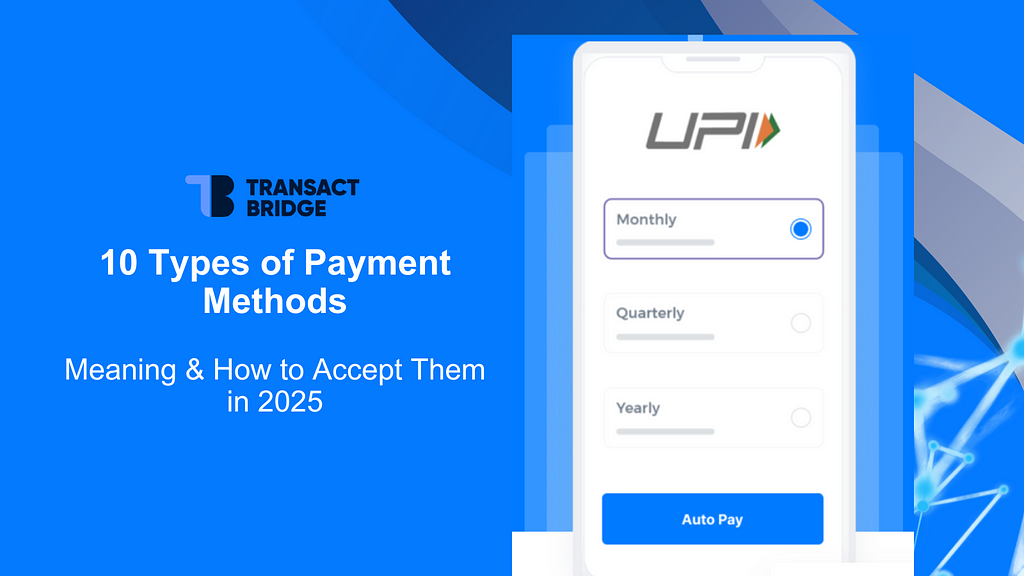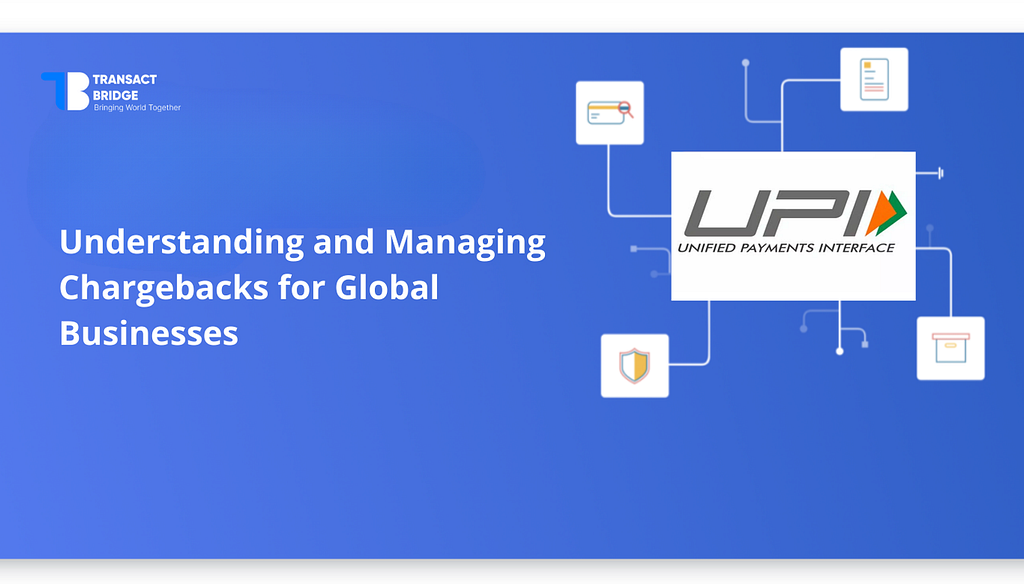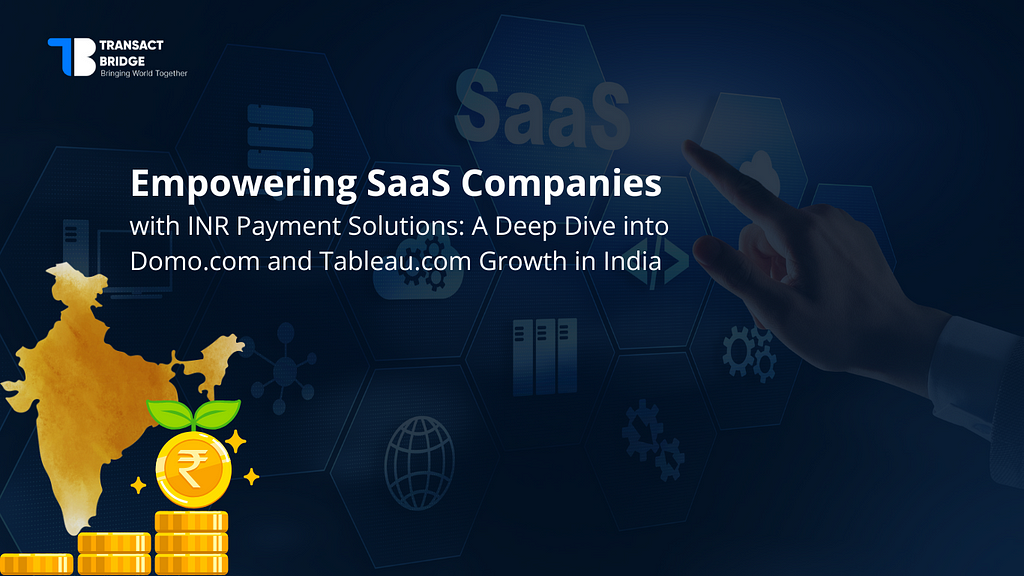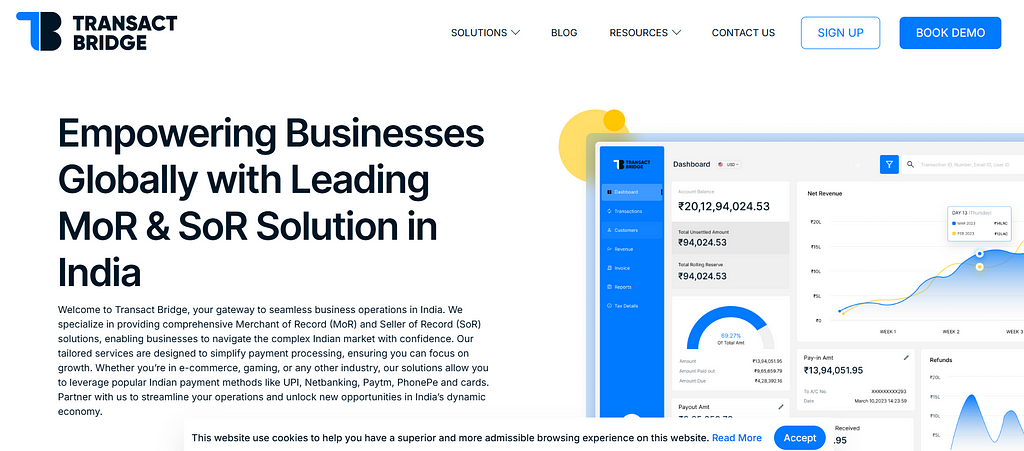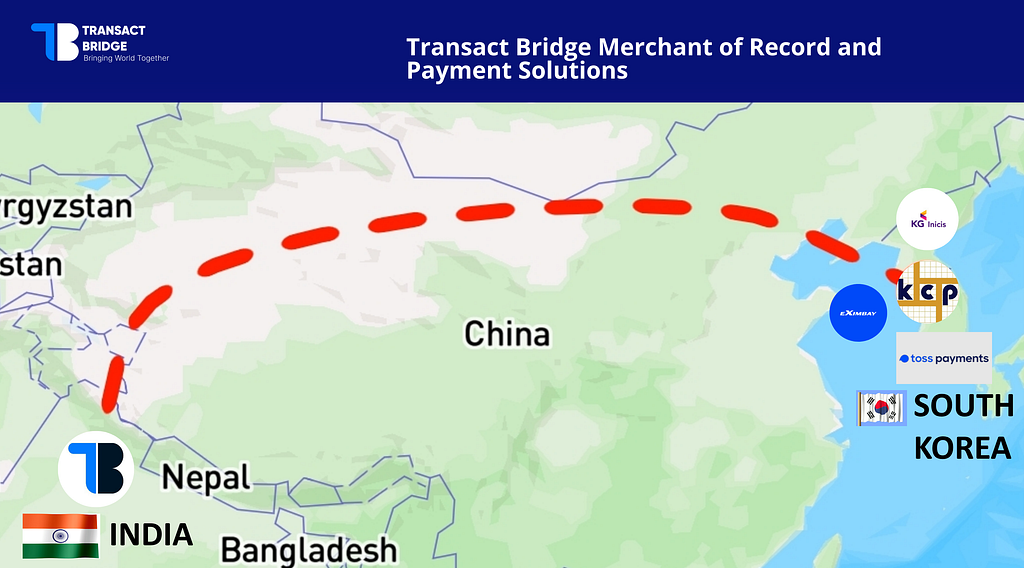
Recurring Payments in India: How Global Companies Can Scale Seamlessly with a Merchant of Record (2025 Guide)
Published on: Wed 15-Oct-2025 12:40 PM
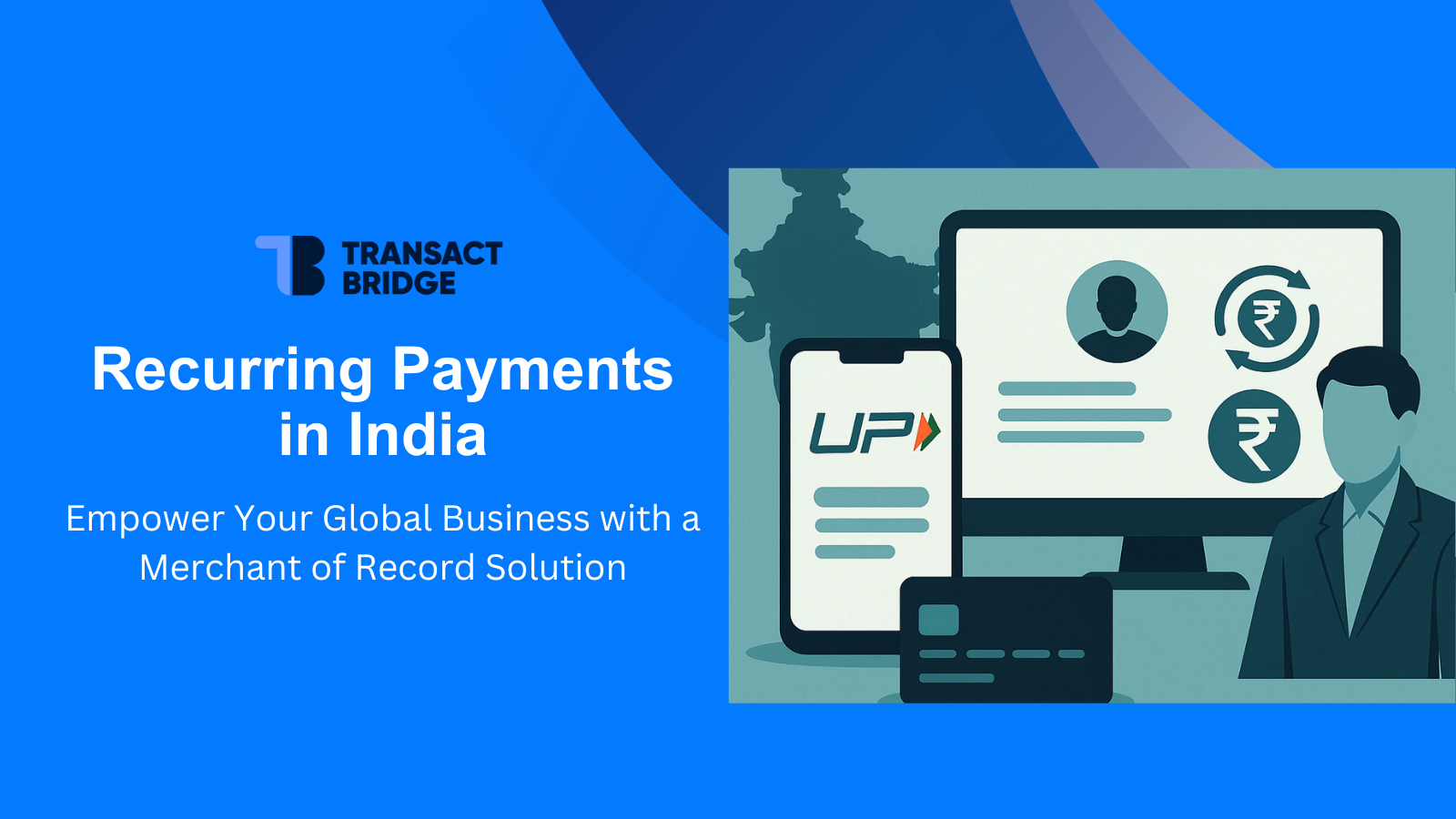
If your company offers subscriptions, SaaS services, or digital memberships, recurring payments are the backbone of your revenue model.
However, expanding into India brings a maze of local regulations, fragmented payment methods, and tax complexities. This is where a Merchant of Record (MoR) solution like Transact Bridge steps in — enabling you to bill Indian customers in INR, handle taxes, and automate renewals without establishing a local entity.
What Are Recurring Payments?
Recurring payments are automatic transactions scheduled at regular intervals — monthly, annually, or usage-based. They’re ideal for businesses offering continuous services such as software subscriptions, media streaming, memberships, and online learning.
Key Metrics for Recurring Revenue
Customer Lifetime Value (CLTV) – measures long-term profit per customer.
Churn Rate – identifies customer retention and satisfaction.
Payment Success Rate – critical for stable cash flow, especially in markets like India with multiple payment systems.
According to Statista, India’s digital payments market is expected to exceed $300 billion by 2026, driven by recurring billing models and UPI adoption.
(External Source: Statista Digital Payments Report 2025)
The Growing Power of Subscription Models
From SaaS tools to OTT platforms, recurring billing is becoming a dominant model globally. It allows businesses to:
Predict revenue and growth more accurately.
Maintain customer relationships through automated renewals.
Offer flexible pricing (monthly, annual, or hybrid).
Yet, entering a new market like India requires local expertise — something most foreign companies lack.
Why Recurring Payments Are Complex in India
India’s payment ecosystem is vibrant but complicated. Unlike Europe or the US, where card-based billing is standard, India relies on UPI, net banking, debit cards, and e-mandates.
The Main Obstacles
RBI regulations require mandate registration for recurring transactions.
Local tax laws (GST) demand domestic invoicing.
Payment failures can spike due to expired cards or insufficient funds.
Cross-border billing can trigger compliance issues under FEMA.
Without a local entity, it’s nearly impossible for foreign companies to navigate all this independently.
Merchant of Record (MoR): The Complete Solution
A Merchant of Record acts as the official seller of your product or service in a target market. When you partner with an MoR like Transact Bridge, they handle:
All local compliance (GST, RBI, FEMA).
Customer payments in Indian Rupees (INR) via UPI, cards, wallets, or net banking.
Subscription billing & auto-renewals.
Refunds, chargebacks, and tax filings.
This means you can accept payments in India legally without registering a local business entity.
Benefits of MoR for Recurring Billing
Benefit | Description |
Local Compliance | MoR manages tax, invoicing, and RBI regulations. |
Multiple Payment Options | Accepts UPI, net banking, local cards, and wallets. |
Reduced Churn | Smart retries and dunning systems recover failed payments. |
Faster Market Entry | Start selling in India without setup delays. |
Currency Flexibility | Bill in INR, settle in USD or EUR. |
How Transact Bridge Simplifies Recurring Payments
At Transact Bridge, the focus is clear — helping global companies sell in India smoothly.
Their solution enables:
Recurring billing with UPI Autopay, e-Mandates, and card-based auto-renewals.
Smart retry logic for failed payments.
GST-compliant invoicing for Indian customers.
Transparent dashboards to monitor recurring revenue and churn.
Full regulatory protection under RBI and FEMA frameworks.
With 99%+ transaction success rates, Transact Bridge ensures your recurring payments never break the customer experience.
Regulatory Compliance and Tax Handling
Compliance is a major barrier for international firms. Indian authorities like the Reserve Bank of India (RBI) and Goods and Services Tax (GST) councils have strict rules.
Transact Bridge assumes the responsibility to:
Register and remit GST on your behalf.
Generate local tax invoices for Indian buyers.
Manage currency remittance and FEMA compliance.
Adhere to data protection & AML/KYC laws.
(External Resource: RBI Framework for Recurring Transactions)
Essential Recurring Payment Features to Look For
When evaluating a Merchant of Record or payment solution, ensure these are included:
Smart retries and payment routing to reduce failure rates.
Customer notifications and dunning workflows.
Support for Indian payment instruments (UPI, net banking, wallets).
Detailed analytics dashboards.
GST-compliant invoicing automation.
Each feature directly impacts revenue recovery and user retention.
Case Study: SaaS Company Expanding to India
A UK-based SaaS company, TechFlow, wanted to onboard Indian clients but lacked a local entity.
By partnering with Transact Bridge:
TechFlow launched Indian pricing in INR.
Integrated UPI Autopay for recurring billing.
Reduced failed payments by 32%.
Received monthly settlements in EUR without compliance risks.
This approach enabled TechFlow to grow its Indian MRR (Monthly Recurring Revenue) within 3 months — without hiring legal or tax consultants.
Technical and Operational Best Practices
Use tokenized transactions for security.
Implement localized checkout experiences for UPI and e-mandates.
Ensure auto-renewal consent follows RBI standards.
Integrate refund and chargeback workflows early.
Keep communication transparent through automated reminders.
(External Resource: Visa Token Service Overview)
Pricing and Cost Considerations
Expect costs around:
2–3% + fixed fee per transaction.
Conversion or settlement charges (for USD/EUR payouts).
Mandate setup costs for recurring payments.
However, the savings on compliance, tax handling, and local setup make the MoR route far more cost-efficient than registering an Indian entity.
Choosing the Right MoR Partner
Before signing, verify that your MoR partner:
Has local licenses and compliance clearance.
Offers transparent pricing and SLA guarantees.
Provides reliable support across time zones.
Ensures data ownership remains with your company.
You can learn more about Transact Bridge’s compliance-first approach on their Solutions Page.
Future Trends in Recurring Payments
The recurring payment landscape in India is rapidly evolving:
UPI Autopay adoption is increasing among Gen Z consumers.
Open banking and AI-driven billing recovery will dominate.
Cross-border MoR models will become the global standard for digital businesses.
The key takeaway? Companies that integrate early with compliant MoR solutions will lead the next wave of digital commerce in India.
FAQs
1. Can my company accept recurring payments in India without a local entity?
Yes. Through a Merchant of Record partner like Transact Bridge, you can accept INR payments, stay compliant, and settle funds internationally.
2. What payment methods support recurring billing in India?
UPI Autopay, e-Mandates, recurring card billing (Visa, Mastercard, RuPay), wallets, and net banking.
3. How is tax compliance managed for foreign companies?
Your MoR handles all GST filings and provides local invoices to customers in compliance with Indian regulations.
4. Are recurring payments legal under RBI rules?
Yes, as long as e-Mandates or UPI Autopay instructions are registered and customer consent is properly obtained.
5. What’s the difference between MoR and a traditional payment gateway?
A payment gateway only processes transactions; an MoR assumes full legal, tax, and compliance responsibility for selling in a foreign market.
6. How long does integration take with Transact Bridge?
Most clients go live within 7–10 business days, with support for API and hosted checkout integration.
Conclusion
Recurring payments power the world’s subscription economy — and India is the next frontier.
With Transact Bridge as your Merchant of Record, you can:
Collect recurring payments from Indian customers effortlessly.
Ensure RBI and GST compliance.
Gain faster market entry with zero local setup.
Ready to grow your subscription business in India?
Book a Free Consultation with Transact Bridge and start scaling today.





